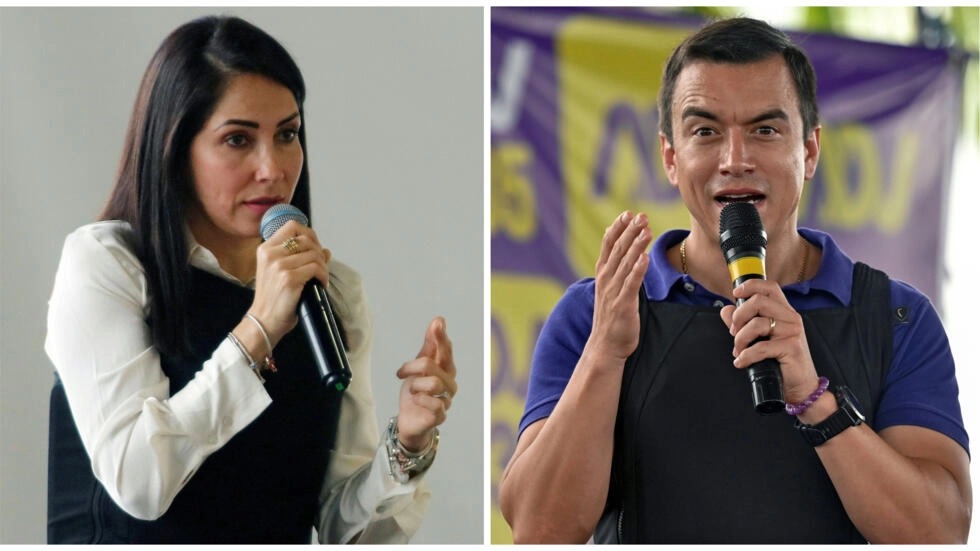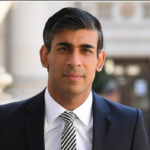
A climate of fear hangs over the campaign in which the two finalists — socialist Luisa Gonzalez and banana empire heir Daniel Noboa — have both vowed to address the escalating violence.
Whoever wins will be elected to only 16 months in office — completing the term of incumbent Guillermo Lasso, who called a snap vote to avoid possible impeachment for alleged embezzlement.
The main concerns of Ecuadorians, according to recent polls, are crime and insecurity, followed by unemployment.
Long a peaceful haven between major cocaine exporters Colombia and Peru, the South American nation has exploded in violence in recent years as enemy gangs with links to Mexican and Colombian cartels vie for control.
The fighting has seen 460 inmates massacred in prison since February 2021 — many beheaded or burned alive — while gangs have dangled headless corpses from city bridges and detonated car bombs outside police stations in a show of force.
The country’s murder rate quadrupled in the four years to 2022, and some 3,600 Ecuadorans have been murdered so far this year, according to the Ecuadoran Organized Crime Observatory.
In August, the violence claimed the life of anti-graft and anti-cartel journalist and presidential candidate Fernando Villavicencio, mowed down in a barrage of submachine gun fire after a campaign speech. He had been polling in second place.
A state of emergency was declared after Villavicencio’s assassination, and Noboa and Gonzalez both campaigned in bulletproof vests, surrounded by heavy security details.
Reporters following them on the campaign trail also donned protective jackets and helmets, travelling in armoured vehicles.
Many have received death threats in the lead-up to the election, which has also seen a mayor, a municipal councillor, a candidate lawmaker and a local politician killed.
Seven prisoners suspected of Villavicencio’s assassination were murdered in jail.
Challenges for governance
Gonzalez, 45, is the handpicked candidate of socialist ex-president Rafael Correa, who governed from 2007 to 2017 and lives in exile in Belgium to avoid serving an eight-year prison term for graft — another major concern in the South American country.
Her rival, 35-year-old Noboa, is the son of one of Ecuador’s richest men, who himself has five failed presidential bids behind his name.
Either would make history if elected: Gonzalez, a lawyer, becoming Ecuador’s first woman president and Noboa, a relative political unknown until recently, its youngest.
Opinion polls predict a close race, with a high percentage of undecided voters.
Voting is compulsory for 13.4 million eligible voters in the country of 16.9 million.
Whoever wins will be allowed to run again for the 2025-29 presidential term, and the one after that.
This means the president “will be campaigning all the time… to get to 2025. That raises many challenges for governance,” political analyst Pablo Medina of the Universidad San Francisco de Quito told AFP.
Poverty at 27 percent
Gonzalez, an evangelical Christian and promoter of traditional family values who had in the past opposed the right to abortion even in cases of rape, has promised more social spending if she is elected, especially on education and healthcare.
She has also suggested deploying the army in prisons and at the borders to clamp down on the gangs.
Businessman Noboa has vowed to put the most violent inmates on prison barges off the coast.
Neither will have the luxury of a majority backing their projects in parliament and with only 16 months in office, both will face an uphill battle to push through any reforms.
Ecuador is gripped by a poverty rate of 27 per cent, with a quarter of the population either unemployed or holding down an informal job.
Voting stations will be open for 10 hours from 7 am (1200 GMT).
AFP





